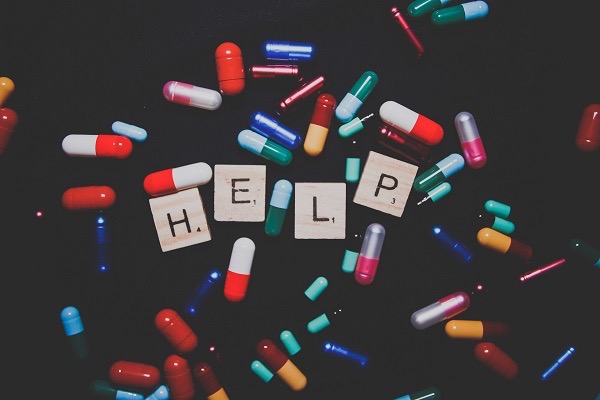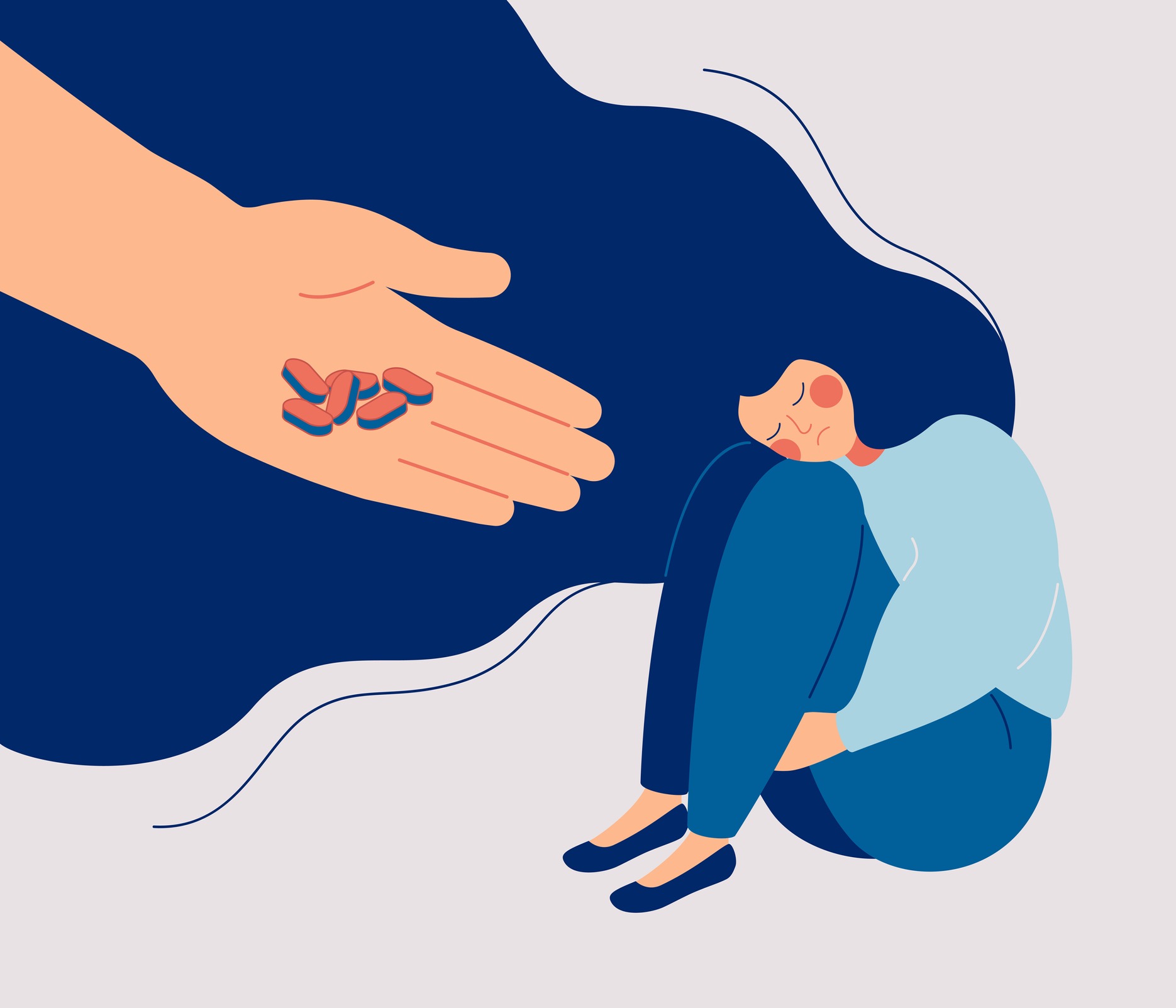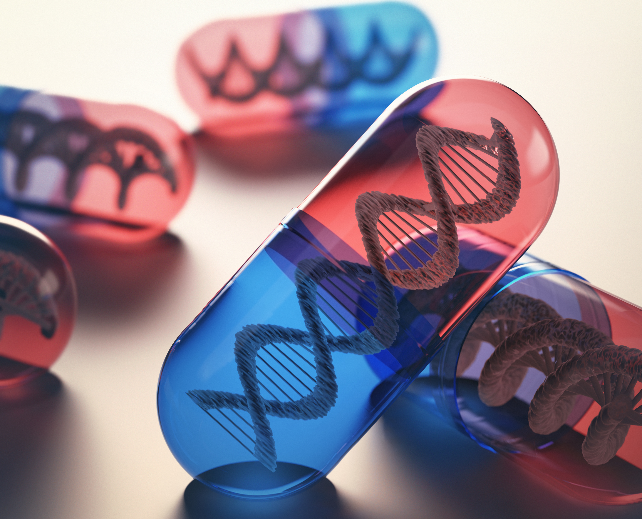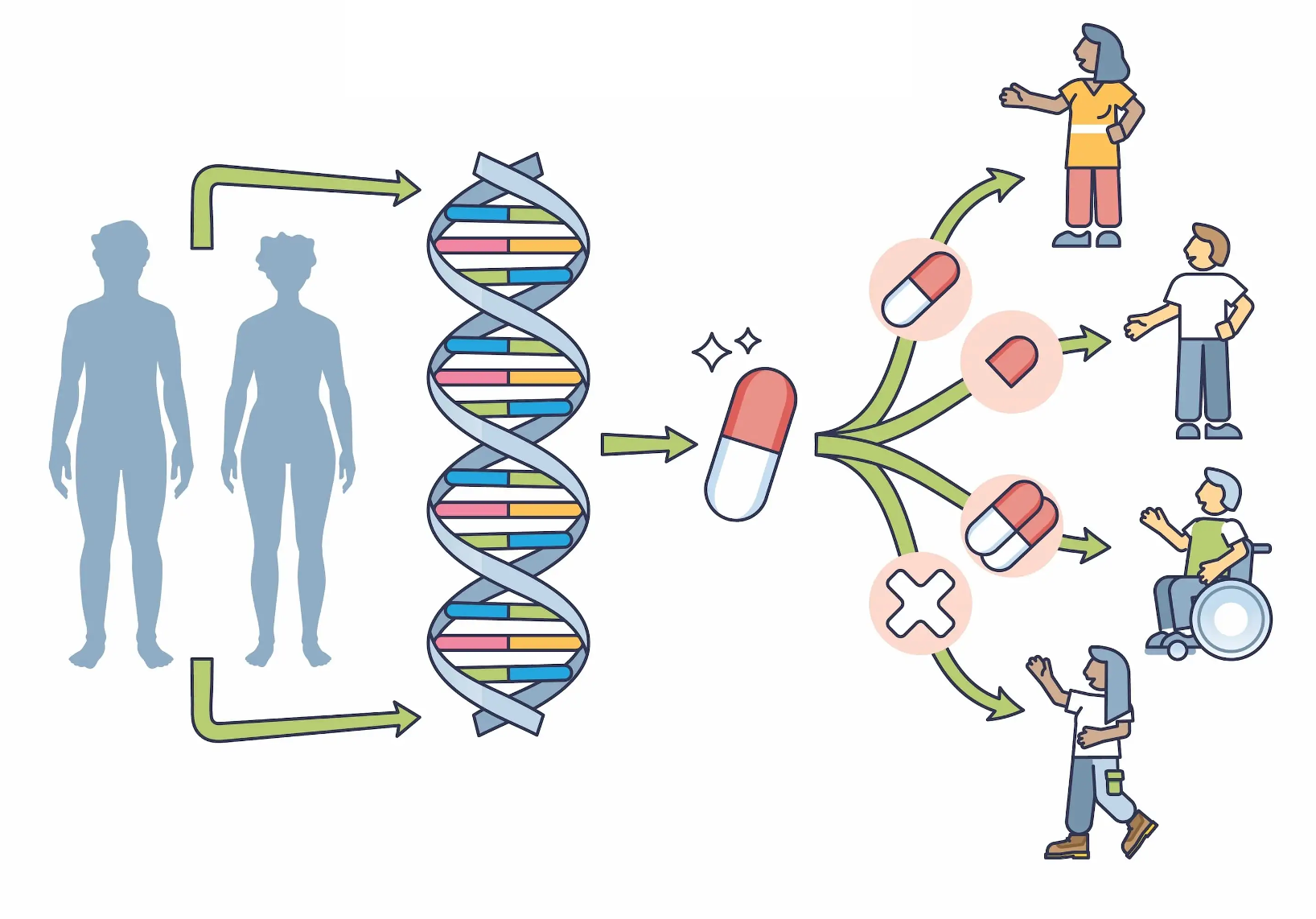How genetics can help patients with mental illness
The treatment of patients with many psychiatric illnesses is quite lengthy, which is due (among other aspects) to the fact that the effect of many medications for these illnesses takes up to 6 weeks or even longer, and there is never a guarantee that the medication will have the expected effect. It is not uncommon in psychiatric care to have to try several different types of medication before finding the most optimal one.
This issue is then logically addressed by the patients themselves on various forums or social networks, where they ask each other which medication has or has not helped whom, when antidepressants will work for them (they usually ask about their specific medication), why they have not yet worked, why their effect is not what they expected, and similar questions.
Drugs are mostly broken down in our bodies by several enzymes that are made by different genes. The relevant genes then contain information about how many enzymes will be produced and also whether the enzyme produced is functional or non-functional. And through this, the genes fundamentally influence what will happen to the drug in our body. Increased or decreased activity of drug-degrading enzymes is not a rare phenomenon.
This issue is then logically addressed by the patients themselves on various forums or social networks, where they ask each other which medication has or has not helped whom, when antidepressants will work for them (they usually ask about their specific medication), why they have not yet worked, why their effect is not what they expected, and similar questions.
Drugs are mostly broken down in our bodies by several enzymes that are made by different genes. The relevant genes then contain information about how many enzymes will be produced and also whether the enzyme produced is functional or non-functional. And through this, the genes fundamentally influence what will happen to the drug in our body. Increased or decreased activity of drug-degrading enzymes is not a rare phenomenon.

Why are some psychopharmaceuticals (especially antidepressants) slow to take effect?

The reason why it is not very possible to ensure a faster onset of action is that supplementing the body directly with the missing neurotransmitters (generally chemical organic substances involved in the transmission of signals between neurons) is not very effective, because they break down very quickly in the body. Therefore, a more appropriate approach is to prevent their breakdown or increase their amount in the space of nerve connections.
In the literature, abbreviations are commonly used for the different mechanisms of action, e.g. SSRIs or IMAOs, to explain that they involve inhibition of the reuptake of certain neurotransmitters (e.g. serotonin) or inhibition of the enzymes responsible for the breakdown. When antidepressants are taken, changes occur in the regulation of neurotransmitters and their receptors in the brain. These changes are not immediate and require time to develop and reach the level that is associated with a therapeutic effect. This is why the onset of action of these drugs is also significantly slower than for other classes of drugs.

Why do patients often ask "when will my antidepressants start working?"

It is not uncommon in psychiatric care to have to try several types of medication before finding the most optimal one. Unfortunately, the actual withdrawal of such medication must also be gradual, otherwise it brings a number of significant side effects. This prolongs the whole treatment process considerably.
This issue is then logically addressed by the patients themselves on various forums or social networks, where they ask each other which medication has or has not helped whom, when antidepressants will work for them (they usually ask about their specific medication), why antidepressants are not yet working for them, why the effect of antidepressants is not what they expected and similar questions.
It is important to realize that many people are in a very poor mental state and that they are experiencing real objective suffering and are trying to support each other in believing that the medication prescribed will actually help them.

How can genetics help these patients?

Drugs are mostly broken down in our body by several enzymes that are produced by different genes. The respective genes then contain information on how much enzyme will be produced and also whether the enzyme produced is functional or non-functional. And through this, the genes fundamentally influence what will happen to the drug in our body. Increased or decreased activity of drug-degrading enzymes is not a rare phenomenon. These associations are addressed by the fields of pharmacogenetics and pharmacogenomics, which aim to determine how a drug will act on a particular person. The interaction between genes and drugs is reciprocal and bidirectional.
This means that genes influence how a drug will act on our body, but also how our body will act on the drug. Psychiatry is one field where pharmacogenetics greatly assists in drug selection or can reveal the reason for adverse drug reactions, but it is also used for several other drug classes. For more information, see also THIS PAGE.

Help choose the right medication

An example within this field where a drug acts on our body is the mutation of the gene for serotonin receptors in the brain. If the mutation makes the receptor 'wrong', the drug will not bind to it at all and thus will not act on our body.
Such a person will then be so-called pharmacoresistant, i.e. will show no response to that particular treatment. If the doctor had this information beforehand, he would have given the patient a drug that acts on a different site than the serotonin receptor.

Help to choose the right dose of medication

If the breakdown of drugs is genetically reduced, the drug will be removed from the body more slowly, its blood level will rise, and once a certain threshold is crossed, side effects will begin to occur. If a doctor, here specifically a psychiatrist, has information about the slow degradation of a particular drug, he or she can give the patient only the minimum dose (perhaps a quarter of the normal dose), and the patient will be helped and not harmed by the drug even at that dose.
Although there are many factors that influence a patient's response to medication, it appears that genetic predisposition plays the most important role.

A specific example of the result and recommendations of the pharmacogenetic analysis performed

Here, in a specific example (see appendix), is an excerpt from an analysis of Pharmagen, which concerns the metabolism of a commonly prescribed psychopharmaceutical from the group of SSRIs (serotonin reuptake inhibitors), which are citalopram and escitalopram (in the Czech Republic registered as Apo-cital, Citalec, Citalon, Citalopram, Pram, Seropram, respectively. Anxila, Cipralex, Depresinal, Elicea, Escirdec neo, Escitalopram, Escitil, Esoprex, Estan, Itakem, Lenuxin or Miraklide depending on the manufacturer and generation of the group).
This information may be crucial for the treating psychiatrist, who will know that it is more appropriate to deploy a medication from another group and thus will not burden the patient with the possible discontinuation of a medication that he/she would have taken and for which the desired therapeutic effect did not occur for the reasons mentioned above.
In addition, there are a large number of psychopharmaceuticals on the market and, unfortunately, there are also a large number of persons for whom the first chosen drug does not work at all. In most cases, the doctor has a relatively wide range of drugs to give the patient.

How the examination proceeds

- Only a small amount of patient DNA is needed to determine the genetically determined activity of various enzymes or carriers. This can be obtained ideally by blood sampling, but also by a painless oral swab.
- The collection can be performed either in our outpatient clinic or (in the case of an oral swab = buccal swab), it is also possible to collect it as part of a home collection kit.
- The analysis takes 10 working days from the time the sample is submitted to our molecular genetics laboratory.
- The result must be forwarded to the attending physician, who can adjust the prescribed medication accordingly, either in terms of dosage or choice of the correct medication.